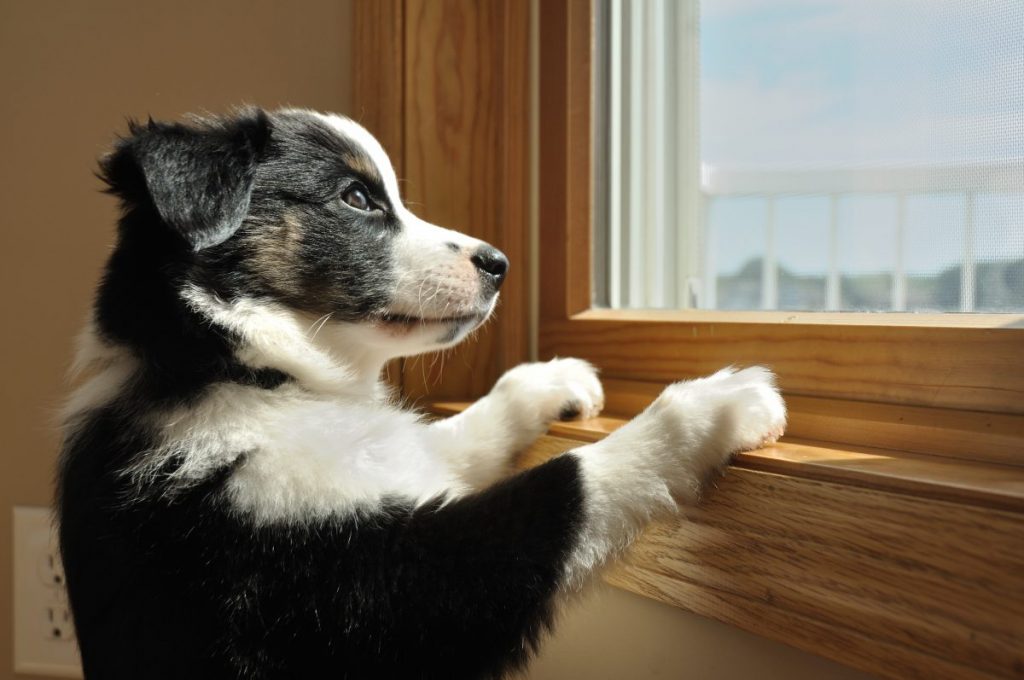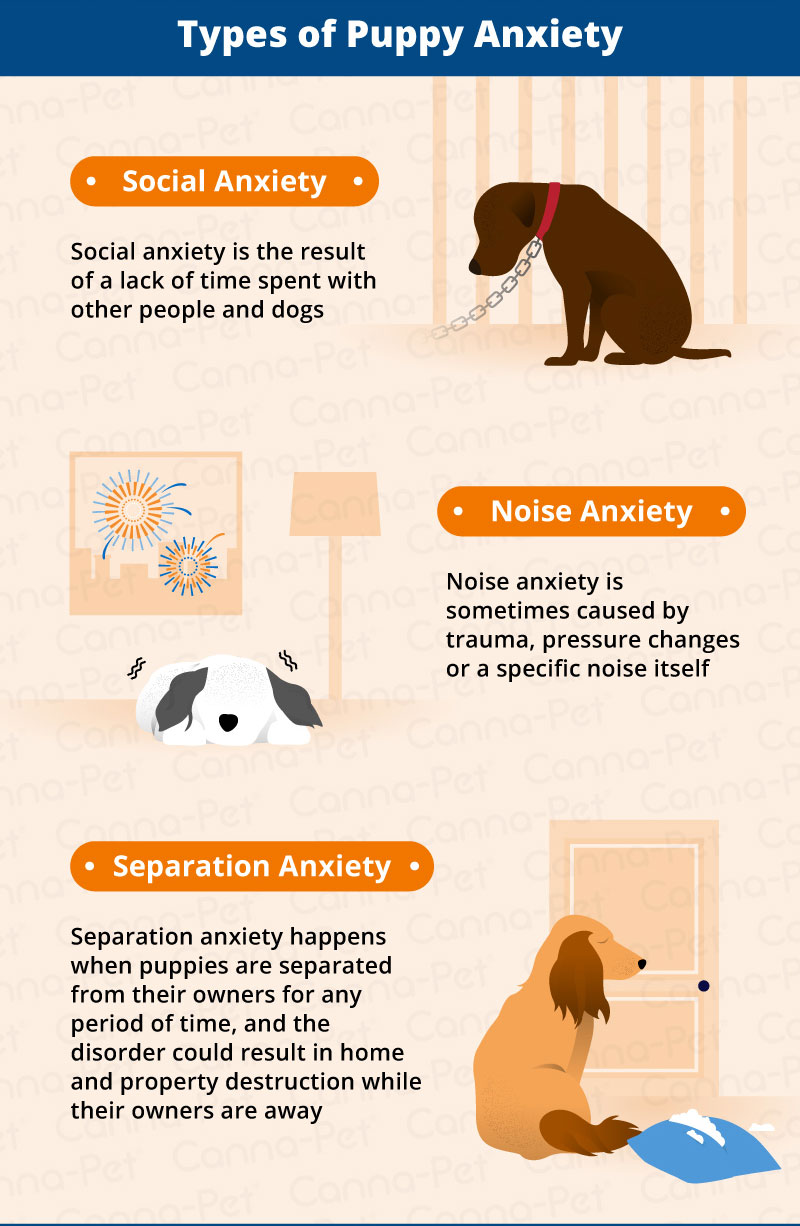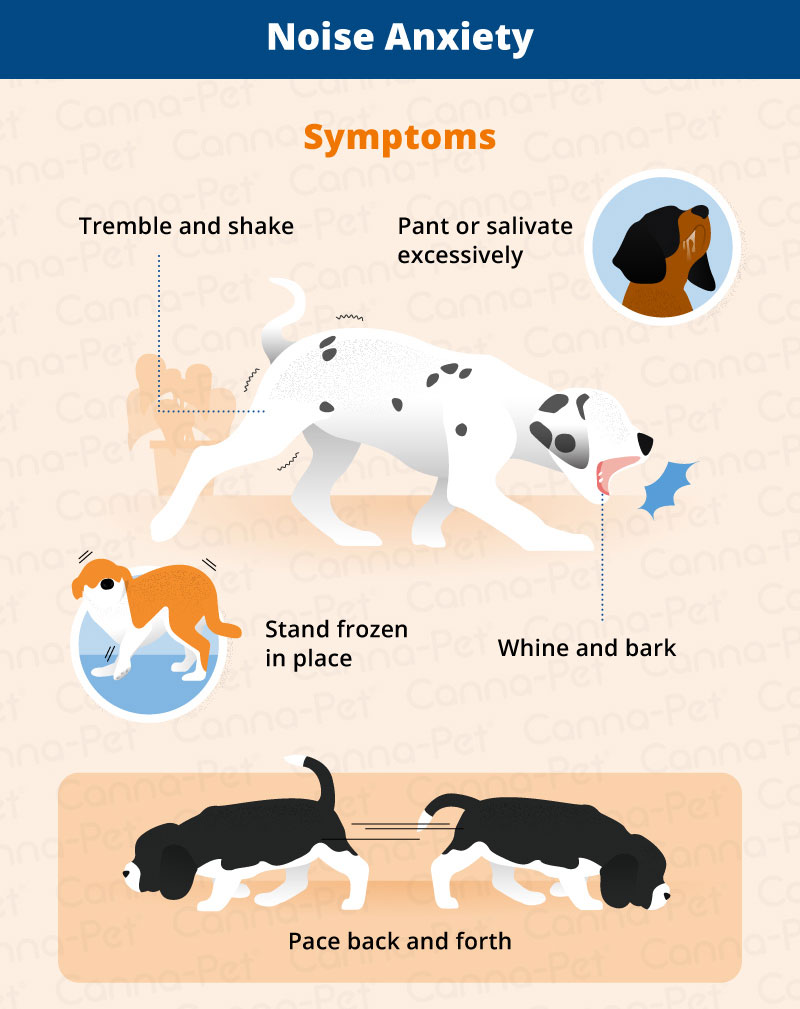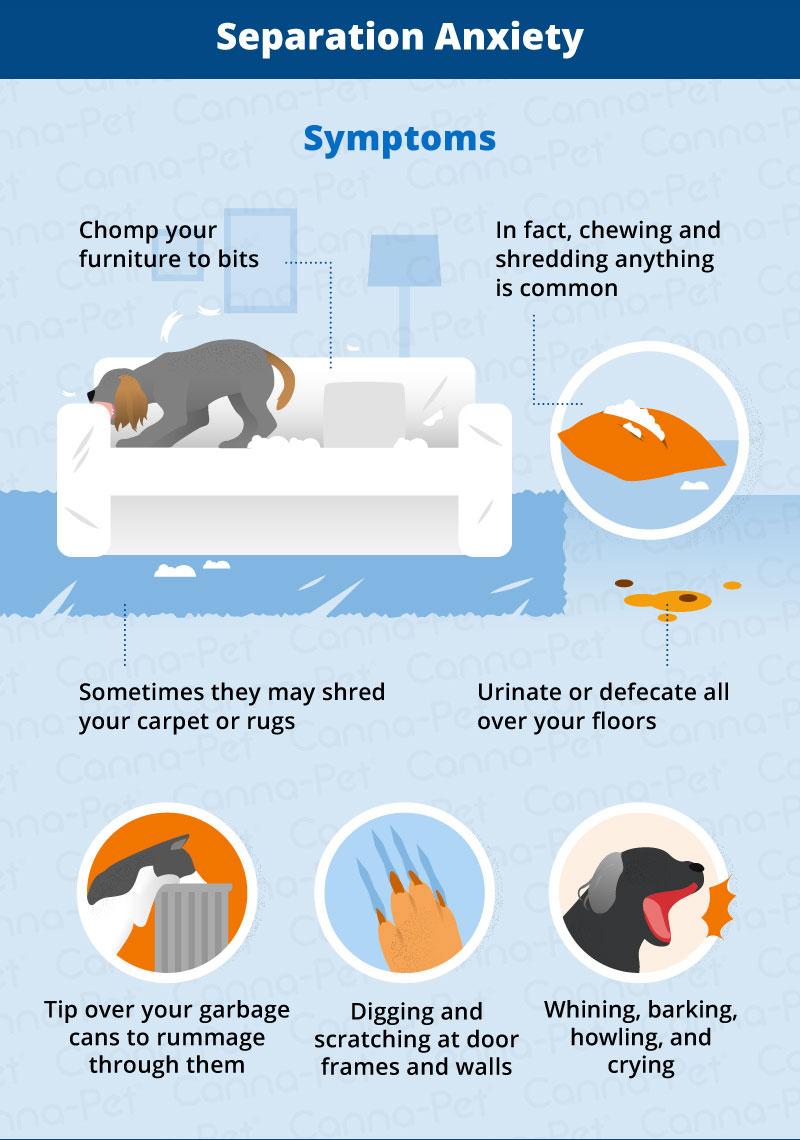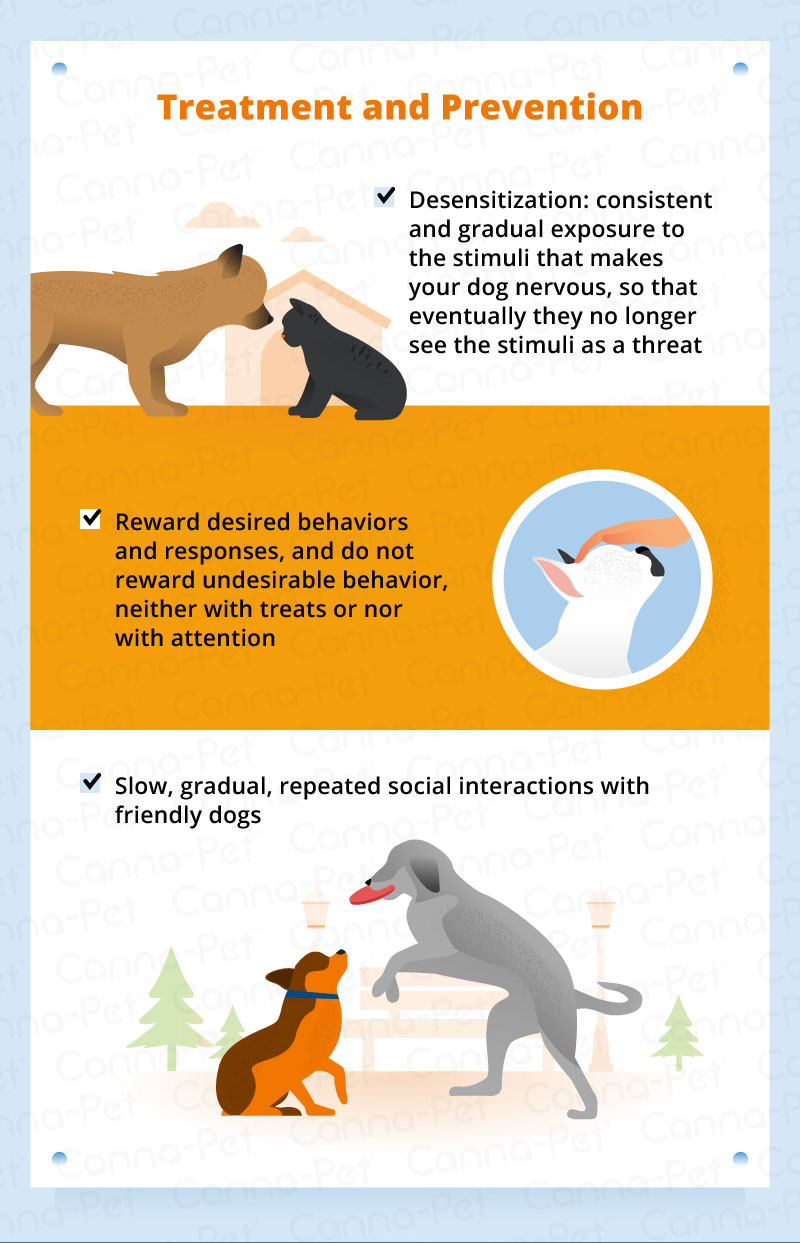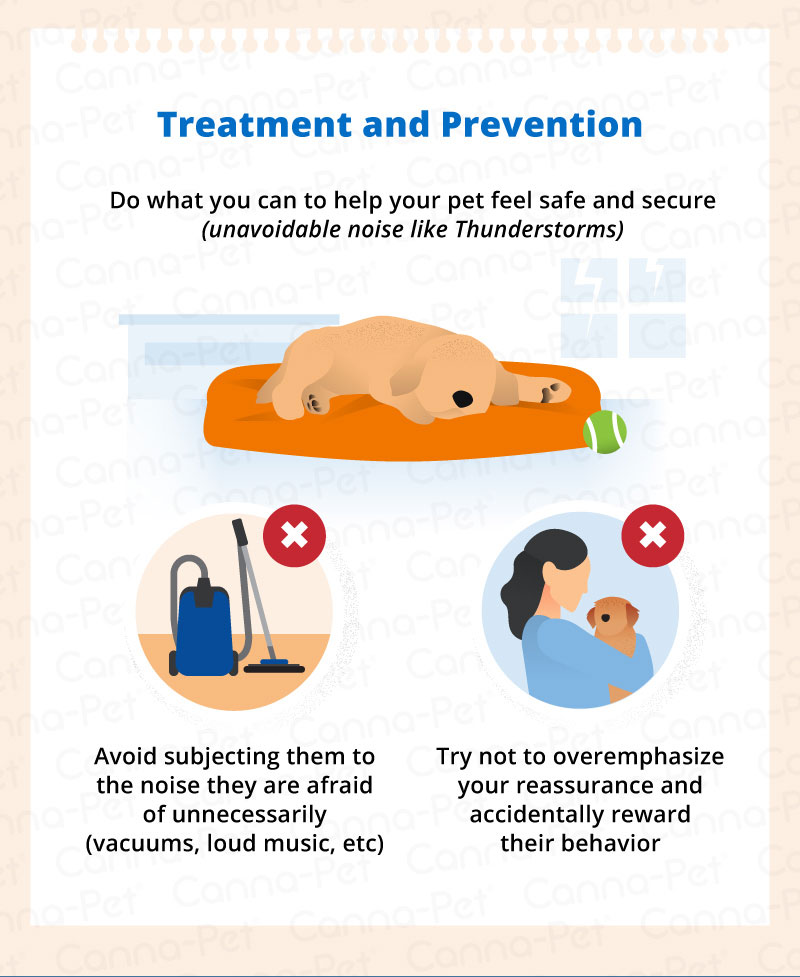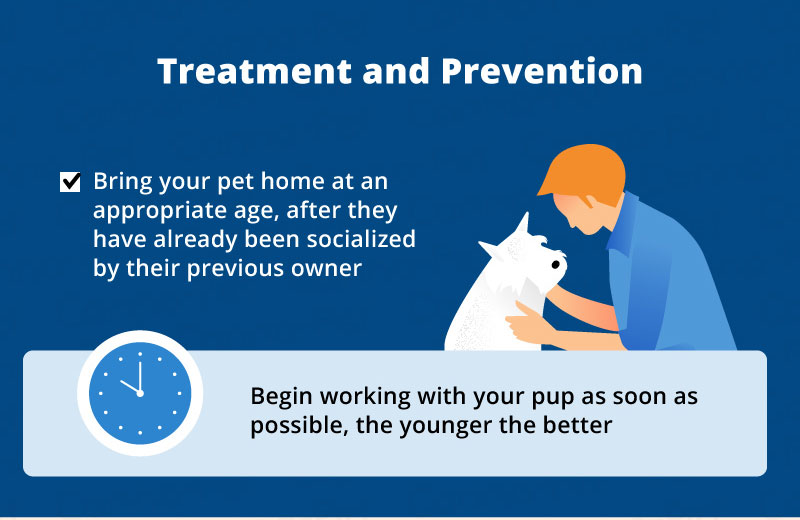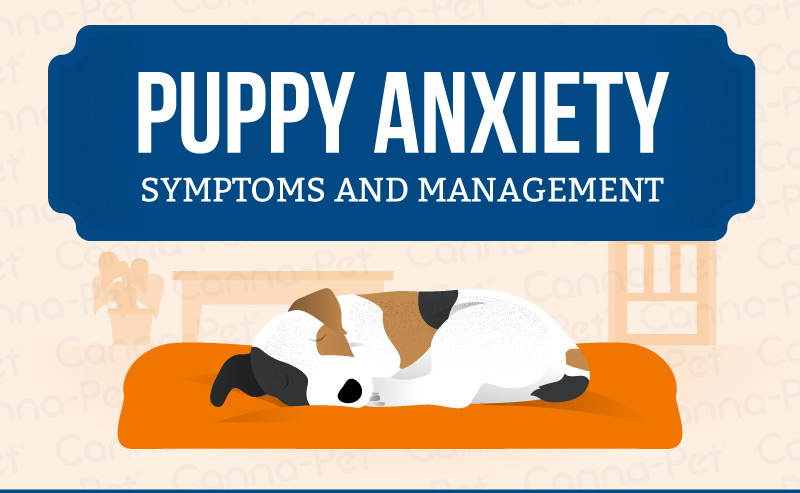
Just like humans, puppies can suffer from anxiety disorders. Often, they suffer from separation anxiety, although sometimes they can suffer from social anxiety and noise anxiety. You can discern the difference based on the triggers and your pup’s response to those triggers.
Social Anxiety in Puppies
Social anxiety is the result of a lack of time spent with other people and dogs. Proper socialization is necessary for a healthy and well-adjusted puppy. Dogs that aren’t properly socialized as a youngster may display fear and become aggressive as a result.
Think of it like an infant who is never left home alone with anyone but mom. The child will cry for mom and want no one else but mom.
Puppies are similar, so it’s important to make a concentrated effort to ensure your pup is around more than just one person as well as other dogs and animals so that they learn proper social skills.
When puppies are socialized well, it helps them to adapt to changing situations and environments without fear or anxiousness, and makes for a much nicer pet.
Symptoms of Social Anxiety in Puppies
Social anxiety will often manifest based on your pup’s temperament. If your dog is naturally aggressive, social anxiety can make them behave in an aggressive manner. If your dog tends to be timid, your pup may display timid and fearful behavior.
With time and consistent exposure to stimuli that make your pup anxious, social anxiety can be overcome.
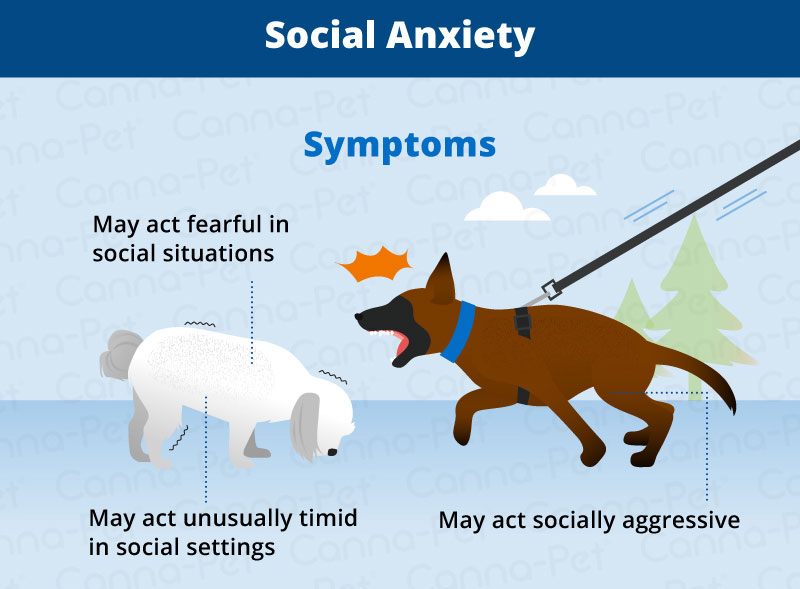
Noise Anxiety in Puppies
If you’ve ever seen a dog go diving under the bed during a thunderstorm, or get worked up and anxious over a repeated noise such as smoke detectors sounding off, or the sound of a running vacuum, you’ve probably witnessed noise anxiety.
There’s really no way of knowing what causes noise anxiety in dogs. Sometimes trauma can play a role, and sometimes it may not be the noise itself, but pressure changes associated with the sound (such as pressure changes that accompany thunderstorms).
It is thought that genetics could play a role in noise anxiety too. Herding breeds such as Border Collies and German Shepherds sometimes display a tendency toward anxious behavior in response to loud noises.
A pup experiencing noise anxiety could hear the same sound on repeat, and still continue to react the same way, over and over, perceiving the sound as a threat.
Whatever the cause, it’s important to try to alleviate your pet’s anxiety however you can.
Symptoms of Noise Anxiety in Puppies
Symptoms can vary, but most commonly a pup suffering from noise anxiety will:
- Pant or salivate excessively
- Whine and bark
- Pace back and forth
- Tremble and shake
- Stand frozen in place
Your dog also may become clingy, or try to cower and hide somewhere to ‘avoid’ the noise.
Puppy Separation Anxiety
Puppies with separation anxiety tend to get anxious when they are separated from their owners for any period of time, and the disorder could result in home and property destruction while you are away.
There’s nothing that can put a damper on excitement like bringing home a new puppy, leaving them home alone for the day, and coming back to find your house has been demolished.
Unfortunately, this is a very common reason why new owners wind up getting rid of their newest addition within the first few weeks. They are surprised at the unexpected stress response and behavior problems that sometimes manifest when a new pup is left alone and suffers from separation anxiety.
This is sad because a pup’s separation anxiety is often easily remedied with a bit of time, love, and consistency.
Symptoms of Separation Anxiety in Puppies
Symptoms of puppy separation anxiety can run the gamut. Typically, your pup may:
- Urinate or defecate all over your floors
- Chomp your furniture to bits
- Tip over your garbage cans to rummage through them
- Sometimes they may shred your carpet or rugs
- In fact, chewing and shredding anything is common
- Digging and scratching at door frames and walls
- Whining, barking, howling, and crying
Unfortunately, humans often mistakenly reinforce these bad behaviors by coming back to give our pup attention and reassurance. It is basically like rewarding a child for a temper tantrum. Dogs come to associate the reward with the behavior, and so the behavior only continues to manifest.
Just like with children, puppies are smart and they quickly learn how to manipulate.
Sometimes separation anxiety can be confused with simple boredom and a pup looking to entertain itself. It’s easy to get the two confused. However, one just means your pup needs to be taught some manners, while real anxiety could require treatment by a vet and/or behavior modification training with a professional.
Generally, if you notice that core behaviors are also associated with other signs of anxiety like drooling, trembling, and/or pacing, you can be relatively certain it’s not mere boredom but true distress your pet is suffering from, and act accordingly.
Also, when a dog is truly anxious, their escape attempts can be desperate and often extreme. They could even result in injury of your pooch, in addition to property destruction.
Sometimes anxious puppies may try to prevent their owner from leaving, or mope around while you get ready, seemingly depressed.
With true separation anxiety, as soon as you leave your dog behind and shut the door, they will begin barking, yelping, and whining. Such signs of real distress are exhibited very quickly, and when you open the door and ‘return home’, your pooch may behave as though he or she hasn’t seen you in ages.
These are all ways you can tell the difference between real separation anxiety and a puppy that is bored or trying to keep himself entertained.
Treating and Preventing Social Anxiety in Puppies
Desensitization is usually the preferred treatment option when it comes to social anxiety. Desensitization requires consistent and gradual exposure to the stimuli that makes your dog nervous, so that eventually they no longer see the stimuli as a threat.
So, if your dog gets anxious around strangers, making consistent efforts to introduce them to strangers and allowing them to spend increasing amounts of time with them can help your pup overcome these feelings.
The same goes for anxiety around other dogs… slow, gradual, repeated social interactions with friendly dogs can help your pup become more comfortable around his fellow canines.
The key is to take things slow and steady, and don’t rush the process. When possible, allow your dog to take the initiative, especially with people, and try not to place them in situations where they feel overwhelmed.
Be sure to reward desired behaviors and responses, and do not reward undesirable behavior, neither with treats or nor with attention.
Treating and Preventing Noise Anxiety in Puppies
Since it’s difficult to ascertain the cause of noise anxiety, preventing it is also hard. In addition, noise anxiety can sometimes go unnoticed for quite some time.
As a result, it’s easy to accidentally reward the behavior, and compound the problem. So as soon as you notice that your pup may be suffering from noise anxiety, you should take action so that the behavior doesn’t get worse.
Keep in mind that noise anxiety can increase in severity very quickly, so it’s important to address it as soon as you recognize it. Fast action will give you the best results in treating dog anxiety.
One way to help your pup with noise anxiety is to avoid subjecting them to the noise they are afraid of unnecessarily. If you know your pup is afraid of the vacuum and its noise, lock them in another room while you vacuum to alleviate the fear.
If you know your pet doesn’t like loud music, don’t play loud music around them. If your pup freaks out when smoke detectors go off, make sure your batteries are replaced regularly to keep them working properly.
If fireworks scare your dog, don’t take them to see a firework display. Leave them at home for the evening.
It seems simple, but sometimes doing what you can to not unnecessarily aggravate your pup and acerbate their fears can be the best thing for them.
If you can’t avoid exposure to the noise that your dog fears most (such as thunderstorms) do what you can to help your pet feel safe and secure. Maybe that means helping them find a spot in your home they feel safe in, or letting them sit in your lap while you offer them reassurance until the episode passes.
However, try not to over-emphasize your reassurance and accidentally reward their behavior. Instead remain calm and cheerful and behave as normally as possible, while still trying to make your pup feel safe and loved.
It is possible that if you can’t treat the behavior yourself and you may need the help of a professional. It will be up to you and the state of your pet to decide if that means you need to hire a trainer, or see the vet for treatment.
Treating and Preventing Puppy Separation Anxiety
One of the best ways to prevent separation anxiety altogether is to bring your pet home at an appropriate age, after they have already been socialized by their previous owner. Barring that, the best way to prevent such anxiety is to begin working with your pup as soon as possible, the younger the better.
Practice leaving your pup alone for brief periods of time, once they’ve reached at least 6-8 weeks of age. You don’t want to interfere with their relationship with mom and normal healthy development, but you do want to begin training them early.
Your pup will learn to be confident and calm, no matter what the situation or place they find themselves in, when they are taught discipline and obedience early.
Try playing with your pup and helping them expend some energy before you leave them alone, and give them a special ‘security blanket’ when you put them in the crate. Maybe it’s a toy, or a treat, or even an old t-shirt, as pets love to cuddle up with something that contains their owner’s scent.
Depending on the age and severity of the anxiety, you could also consider holistic supplements to help relax your dog and curb their anxiety when you are away.
Some Tips for Dealing with Separation Anxiety in Puppies
Remember that puppies don’t understand when your gone. Just like babies, it’s a case of one minute they see you, one minute they don’t, and they don’t understand why they are suddenly alone.
While some exercise and play before you leave is healthy, try to space it a bit away from your actual time of departure. Dragging out farewells can confuse your pup, getting them excited and wound up, and then feeling lonelier when suddenly you’re not there any longer.
They will respond by barking, howling, crying, whining, chewing, scratching, and whatever else their little doggy minds can dream up, in an effort to get you to ‘reappear’.
Sometimes your puppy isn’t behaving out of anger or spite or anxiety at all, and he or she is just looking to play and have fun. But their form of play and fun looks a lot like misbehaving to us, so we think something is wrong and needs to be ‘fixed’. In cases such as this, your puppy just needs a bit of training and discipline.
Just know that whatever form of anxiety your pet may suffer from, it’s almost always treatable with consistency, love, and patience. People don’t overcome fears overnight, and neither do dogs.


